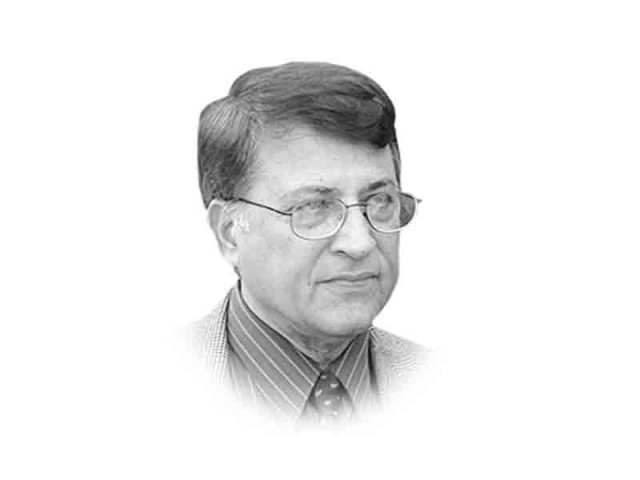On choosing Popes and Caliphs
Had a procedure for choosing successor to Prophet Muhammad (pbuh) been prescribed, history would have been different.

The writer retired as professor of physics from Quaid-e-Azam University, Islamabad
A consensus at electing popes hasn’t always been that easy. History: Pope Gregory X established the Papal Conclave in 1274 after it took the cardinals nearly three years to choose him as the successor to Pope Clement IV. Locking the cardinals in a meeting and gradually decreasing their food rations was seen as good way to expedite agreement on a new pope. Three voting cardinals died during the process. Such is life.
What enables the quick consensus on electing popes in modern times? Simple: the pope’s role has become largely ceremonial since 1536. No head of state need obey his orders. For Catholics, he is an icon of piety and chastity standing above the sordid politics of the world. While they are expected to live and breed according to the dictates of the Church, they do not consider them to be infallible any more. Today, increasing numbers of Catholics are moving away from the Church because of its stand on birth control and divorce. Nevertheless, though with much lessened powers, the new pope speaks for 1.2 billion Catholics.
Who should speak for the 1.5 billion Muslims today? This question is difficult because the Islamic world has been without a caliph ever since Kemal Ataturk eliminated the Ottoman Caliphate in 1924. Earlier, a caliphate had been the norm. Today, several Muslim groups are marketing the idea that restoring ancient glories is contingent upon reviving the caliphate. But this is a prescription for fratricidal conflict.
The problem is that the caliph is generally understood to be both the spiritual as well as temporal leader. The Egyptian scholar, Taha Hussein, was unusual in suggesting that Islam permits the two aspects to be separated. This strongly conflicts with the views of Maulana Abul Ala Maududi or Sayyid Qutb and those who have been influenced by them. In 2001, Osama bin Laden called upon Muslims to “establish the righteous caliphate of our ummah”, a man who would lead and organise the ummah. A Sunni, he would enforce a single Sharia. The bewilderingly many extant sects and schools of thought would have to vanish, either by persuasion or by coercion. Since Shias obviously cannot be persuaded, they (and others) would have to be subdued.
More significantly, the caliph would be the commander-in-chief of all Muslim forces belonging to an Islamic superstate that would supercede the authority of Muslim national states. He would authorise jihad, both defensive and offensive, in forms ranging from actual combat to space wars, cyber jihad, economic sanctions, oil boycotts, making treaties, and dealing with the World Bank and the IMF. Pakistan’s nuclear weapons would be at the caliph’s command. So would oil from Saudi Arabia, Kuwait and the Gulf. If any Muslim country defied his orders, waging war would be an option.
The “Arab Spring”, assisted by the US, has revived the hopes of caliphate-seeking militant groups. Corrupt and dictatorial secular rulers have been ousted in Tunisia, Libya, Egypt, Libya and Yemen. Meanwhile, Syria is in upheaval and may also be “liberated” soon. Further raising hope is that, according to a Pew global survey, 84 per cent of young Pakistanis consider themselves Muslims first and Pakistanis second.
Had a procedure for choosing a successor to Prophet Muhammad (pbuh) been prescribed, history would have been different. A consensus cannot even be imagined. Where should the caliphate’s city be: Makkah, Istanbul, Islamabad, or Jakarta? And what would prevent competing individuals from laying claim? Edward Gibbon, a famous historian, observed that in the 10th century, the caliphate was “disputed by three caliphs ... who reigned at Bagdad, Cairoan and Cordova, excommunicated each other and agreed only in a principle of discord that a sectary is more odious and criminal than an unbeliever”.
Race, colour and ethnicity would be insurmountable problems: imagine that the caliph, chosen howsoever, was a Bengali or a Sudanese. Would he be acceptable to Kuwaitis? Or, if Egyptian, would Indonesians be comfortable? The Saudis would surely insist upon the caliph being their national and, quite possibly, a Qureishi. The superstate’s official language will be Arabic. To understand the implications of this, just look back to the early days of united Pakistan when Urdu was declared to be the official language of the state!
Today, a global caliphate can only be created through violence. The Hizbut Tahrir, which seeks this goal, sees mutinies and insurrections as the solution. Its website calls upon Pakistan’s armed forces to rise against its leadership. Brigadier Ali Khan and his colleagues will surely not be the last officers convicted of sedition.
It is a hard enough question, answerable only by God, to judge who is truly a pious Christian or Muslim. But when the power to make war also depends on the answer, it becomes impossibly difficult. So, the 13th century cardinals locked up by Pope Gregory X would have starved to death rather than arrive at an agreement! Attempting to elect a caliph today would pit Muslim against Muslim in bloody conflict. Although there is zero chance of the caliphate’s revival, this goal nevertheless looms large in the consciousness of those committed to seizing state power and to fundamentally transforming the societies they take over.
Published in The Express Tribune, March 23rd, 2013.
















COMMENTS
Comments are moderated and generally will be posted if they are on-topic and not abusive.
For more information, please see our Comments FAQ